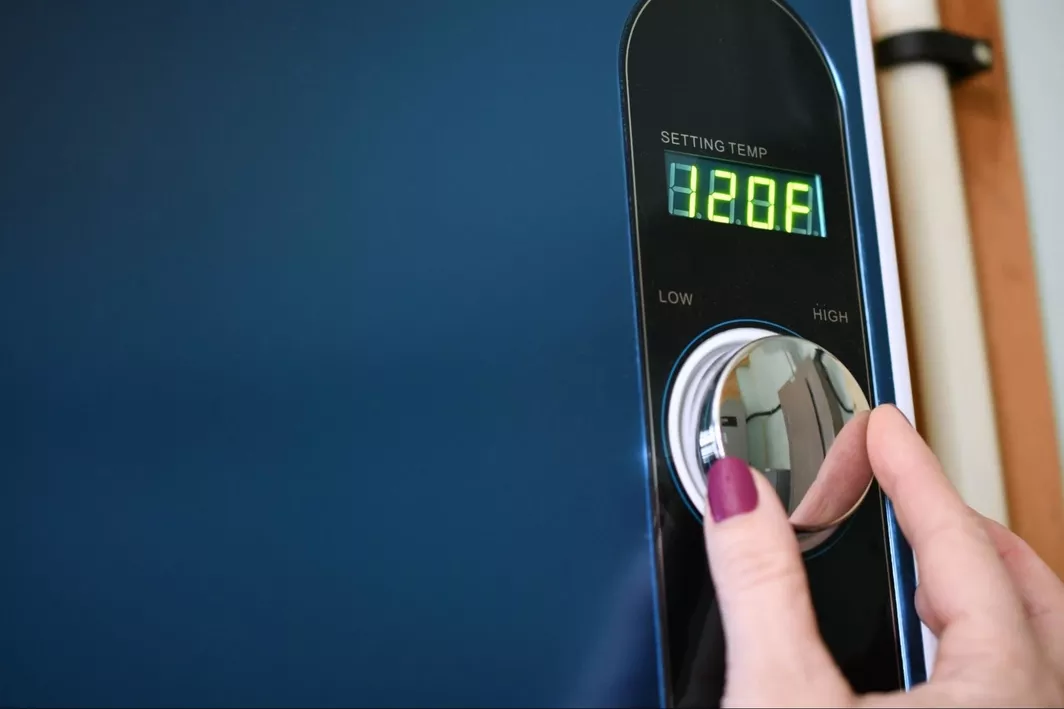Tank vs. Tankless Water Heater: Which Is Best for My Home?

Is your water heater on its last legs? Ready to compare a tankless water heater vs. a tank water heater?
Both systems have benefits and drawbacks. Suppose you’re comparing standard vs. tankless water heater costs. You’ll find that tank water heaters have a clear advantage if you only look at the original installation cost.
When making the decision, you likely need to consider factors like:
- Budget
- Hot water preferences
- Number of hot water appliances you use at once
- Available space
Let’s look at each of these factors to see how they may impact your decision.
Ready to get an estimate for your water heater replacement?
Contact Jon Wayne for fast and reliable service. With more than 200 trucks on the road, we can be to you quickly and give you an estimate on standard or tankless water heaters.
Budget
Tankless water heaters cost more.
Tankless can cost much more, with an average installation price of approximately $8,000. In comparison, a tank heater typically only costs around $2,100 for installation. So, the initial installation cost is significantly higher for a tankless system.
So, why do so many people opt for tankless anyway? Initial installation is only one of the costs associated with a water heater. Tankless systems can last longer than traditional alternatives– some up to 20 years. Tank systems typically last between 8-12 yearsm with the average around 11 years.
Additionally, you can expect to spend less on tankless water heater maintenance. The tank is a significant point of failure for many water heaters, and that’s not an issue with a system that offers water heated on demand. However, if something goes wrong with your tankless system, it’s likely to cost more to fix than a tank water heater. The tradeoff is that you don’t need regular maintenance to flush out sediment, but you may pay more if a part breaks.
In addition to the lower maintenance cost, homeowners may opt for a tankless water heater because of the lower operational cost. Tankless systems only run some of the time to heat water, which can help reduce your monthly utility bills. The Department of Energy estimates that about 20% of your utility bills go right to heating your water, but you can cut that down considerably with a tankless option.
Hot Water Preferences
Tankless water heaters heat water on demand.
Tankless water heaters can often start producing hot water in about 15 seconds. However, that can vary based on the initial temperature of the water flowing into the system and the power of the system you choose.
As long as you aren’t using hot water in multiple locations in your home, tankless water heaters offer endless hot water. If you like long, hot showers, an endless source of hot water is a great way to avoid running out mid-wash. Plus, if you have shared bathrooms or people taking showers simultaneously, there’s no need to fight about who goes first since the hot water won’t run out.
Number of Hot Water Appliances You Use at Once
Standard water heaters are best for those running multiple appliances simultaneously.
Tank water heaters have a supply of hot water ready to go and constantly refill and heat new water to replace the hot water used. The reservoir of available hot water allows you to run the dishwasher and washing machine while someone else takes a shower.
The endless hot water that comes from a tankless system is ideal when you’re only using the hot water at one or two locations in your home. It all comes down to the flow rate. While your tankless system will continue producing hot water, it can only heat a few gallons per minute. If you’re using more hot water than it can produce in that minute, you’ll see the temperature drop further than you might like.
There are solutions to this issue that can give your tankless water heater more power, like point-of-use heaters, but that also will increase your installation costs and may make a tankless system unaffordable.
In general, if you regularly run multiple water-using appliances simultaneously, you might want to stick with a standard system.
Available Space
Tankless heaters save space.
Tankless water heaters are smaller, lighter, and often fit into compact spaces such as closets or cabinets. This space-saving design makes tankless heaters a great way to add hot water to newly added spaces in your home or for apartments.
A standard water heater needs enough room to store between 20-100+ gallons of water. That’s not a small tank, and it often means you need a dedicated space to store it in an out-of-the-way location. Plus, if you need more hot water to accommodate a growing family, upgrading a tank unit may not be easy unless you have the extra space.
Not sure which water heater is best for you? Call on the experts at Jon Wayne.

Our experienced plumbers will give you their honest opinion about which type of water heater will handle your needs. You’ll get a free, up-front estimate and same-day service, so you never miss a shower.
Call us today to schedule an appointment to discuss your tank and tankless installation options.
